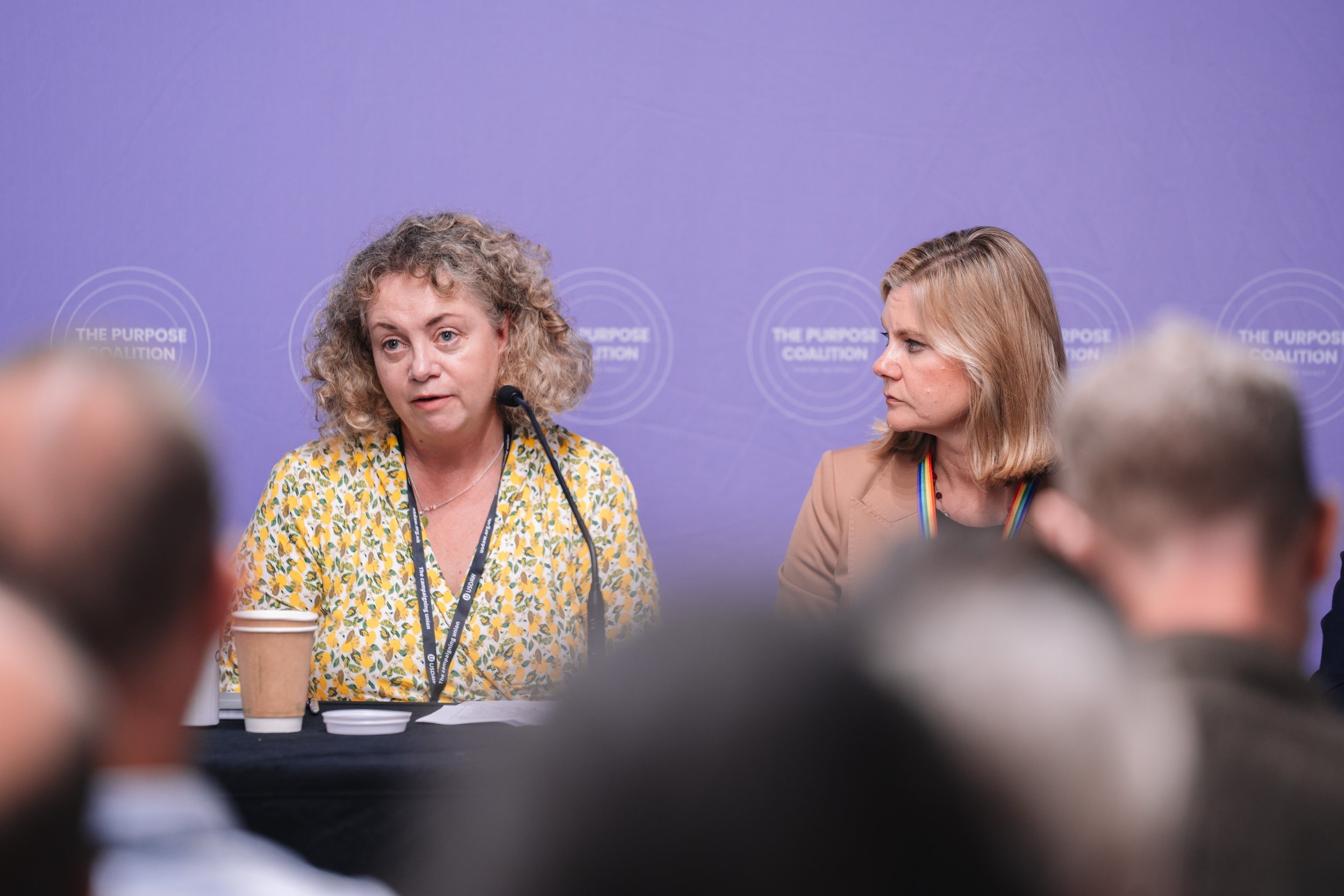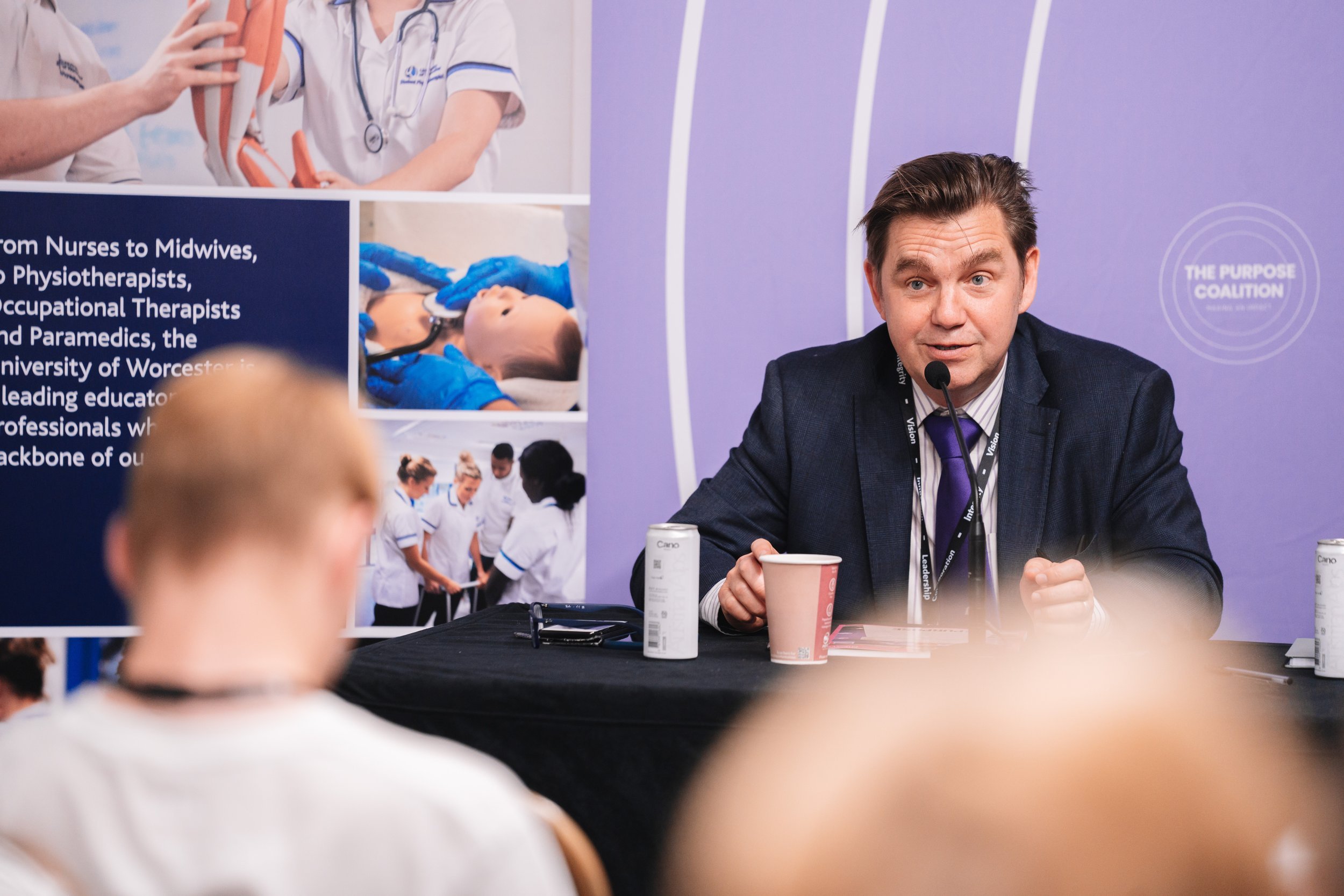Read: LPC 23 - Providing recruitment solutions for the NHS
The NHS and the services it provides will be one of the most important issues at the next general election. There are currently 7 million people on waiting lists, and 100,000 vacancies in the NHS so there is huge interest in Labour’s commitment to building an NHS fit for the future, and what that might look like.
The recruitment and retention of NHS staff was also the focus of an event at the Labour Party Conference today in Liverpool, Recruitment Renewal: How can we make sure the NHS has the healthcare staff it needs to thrive? Hosted by Rt Hon Justine Greening, Chair of the Purpose Coalition, and Professor David Green CBE DL, Vice Chancellor and Chief Executive, University of Worcester, it looked at how government can work in partnership with universities to deliver the training places Britain needs.
Other members of the panel were Mayor Dr Nick Johnson, Mayor of Cambridgeshire and Peterborough, former Newcastle City Council Leader Nick Forbes CBE and Professor Sandra Nicholson, Founding Dean of Three Counties Medical School at the University of Worcester.
There’s no doubt that the NHS is under huge pressure from a combination of rising demand, an ageing population with more people living with more long-term health conditions and heightened public expectation of what ever more advanced treatment can deliver. That is set against a backdrop of constrained capacity as a result of staffing shortages, alongside a challenged social care system and a cost-of-living crisis which has affected both staff and patients.
The Purpose Coalition has been working with many of its health and social care partners to explore ways of tackling the recruitment crisis by attracting and retaining staff from their own communities and by tailoring the service they provide to the needs of those communities. Its advocacy campaign, Your local NHS : Be at the heart of it aims to highlight that work, featuring real-life case studies that feature great examples of individual staff journeys within those organisations.
Universities have a huge role to play in training our healthcare professionals. Today’s event heard from the University of Worcester which is, like other higher education institutions, crucial to levelling up in its community. The pandemic helped to shape its strategy going forward, including by increasing the scale of its health professional education offer. It is very much focused on initiatives that will support potential students from areas of greater deprivation and works with local partners to develop opportunities in health and social care, including apprenticeships in nursing. It looked at what more the government can do to help universities support their local healthcare systems so that they provide the services their communities need.






